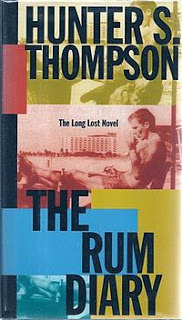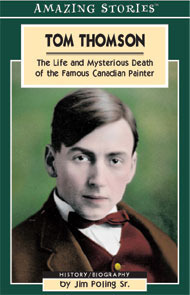Jim Poling Sr.'s Blog, page 52
November 20, 2012
Missing in Action
It was hoped that the literary fad of omitting dialogue quotation marks in novels would simply slip silently away into the night. Regretfully, it has not. The fad appears to have started with Cormac McCarthy, who became hugely successful with his novels The Road and No Country for Old Men. McCarthy has said there is no reason to blot the page up with weird little marks. (That’s a quote, incidentally). If someone can do something outside the norm and still be successful, others definitely will follow the Pied Piper.
 I've just finished reading Hologram for the King, which is a strong parable but takes some thought to figure out the messages the writer is trying to get across. Thought that is constantly interrupted by the use of a single long dash to denote the start of direct dialogue. There is nothing to show where it ends. It’s hard to figure out who is saying what, when and to whom. I finished Hologram and started into The Round House by Louise Erdrich, a favourite writer whose work grows stronger with each outing. Alas, Erdrich has been swept up by the fad: there are no dialogue quotation marks in the book. My mind is regularly distracted from the story while trying to figure out who has started and finished talking. Why make a reader work figuring out dialogue and risk distracting him or her from the story? Not using quotation marks is a silly, unnecessary technique that adds to the public perception that literature is pretentious.
I've just finished reading Hologram for the King, which is a strong parable but takes some thought to figure out the messages the writer is trying to get across. Thought that is constantly interrupted by the use of a single long dash to denote the start of direct dialogue. There is nothing to show where it ends. It’s hard to figure out who is saying what, when and to whom. I finished Hologram and started into The Round House by Louise Erdrich, a favourite writer whose work grows stronger with each outing. Alas, Erdrich has been swept up by the fad: there are no dialogue quotation marks in the book. My mind is regularly distracted from the story while trying to figure out who has started and finished talking. Why make a reader work figuring out dialogue and risk distracting him or her from the story? Not using quotation marks is a silly, unnecessary technique that adds to the public perception that literature is pretentious.
Published on November 20, 2012 05:30
November 9, 2012
The Cardinal
It was just after dawn when I saw him, sitting contentedly on an evergreen branch outside the kitchen window. The sun slipping above the rock horizon across the lake poured even more brilliance over his bright red jacket, making him appear to be a sparkling light on a Christmas tree.
 This morning visitor was a shock. He was the first northern cardinal sighting at Shaman’s Rock in our 27 years here. Cardinals are not seen here because this is bush country, a bit too far north of their range. These beautiful little birds live in forests and patches of bush surrounding residential areas where they find more warmth and more food. Their range has been stretching north with human population growth. It was a coincidence that when he arrived I was reading a London Observer article on seldom seen wildlife showing up in British urban areas. The article had one ecologist warning that in future wild boars will invade British suburbs. It noted that wolves and boars are being seen in urban settings in Rome and Berlin. The article was not clear on why this is happening. Presumably a combination of pesticide bans, more conservation efforts and global climate change are creating more habitable areas for animals, birds, and insects whose lives all are connected through nature’s food chain. North American scientists have said that wild animals once seen only in wild areas are becoming more tolerant of urban settings. Coyotes are an example, and the scientists say we can expect to see wolves, mountain lions and wild dogs in the cities in future. I don’t know anything about that. I’m just happy that my morning was brightened by the unlikely visitor in the red jacket.
This morning visitor was a shock. He was the first northern cardinal sighting at Shaman’s Rock in our 27 years here. Cardinals are not seen here because this is bush country, a bit too far north of their range. These beautiful little birds live in forests and patches of bush surrounding residential areas where they find more warmth and more food. Their range has been stretching north with human population growth. It was a coincidence that when he arrived I was reading a London Observer article on seldom seen wildlife showing up in British urban areas. The article had one ecologist warning that in future wild boars will invade British suburbs. It noted that wolves and boars are being seen in urban settings in Rome and Berlin. The article was not clear on why this is happening. Presumably a combination of pesticide bans, more conservation efforts and global climate change are creating more habitable areas for animals, birds, and insects whose lives all are connected through nature’s food chain. North American scientists have said that wild animals once seen only in wild areas are becoming more tolerant of urban settings. Coyotes are an example, and the scientists say we can expect to see wolves, mountain lions and wild dogs in the cities in future. I don’t know anything about that. I’m just happy that my morning was brightened by the unlikely visitor in the red jacket.
Published on November 09, 2012 07:26
October 27, 2012
The Cruellest Season
Autumn, some people believe, is the cruellest season. Like spring, it is two faced and deceitful, but unlike spring it promises nothing better ahead. It soothes and tempts with warm golden days but deliberately deceives, lulling us into believing that the joyful days of summer are not really gone.
 Golden days, Dying LeavesIt lulls us then slaps us unexpectedly with biting winds, cold rain, darker days and the first falls of winter snow. It strips sheltering trees, leaving their naked bones exposed to the wolfish winds of winter.
Golden days, Dying LeavesIt lulls us then slaps us unexpectedly with biting winds, cold rain, darker days and the first falls of winter snow. It strips sheltering trees, leaving their naked bones exposed to the wolfish winds of winter. Autumn’s cruelty is a favour, however. It helps us to understand the importance of change. Its soft and golden moments offer time for reflection and preparation. Winter requires thoughtful preparation for shelter, warmth and how to get life’s basic necessities in weather that is unkind to those who don’t prepare.
It also offers a deep satisfaction not found as easily in other seasons. A satisfaction that comes from knowing all that can be done has been done. That preparation nourishes confidence, and the hope that good preparation will carry us safely to the renewal promised by the distant spring.
Published on October 27, 2012 13:40
October 16, 2012
Remembering Billy
Writing a book can be a mystical experience. Things happen that sometimes cannot be explained. Like last month after the final proofread for Smoke Signals: The Native Takeback of North America’s Tobacco Industry, which will be in bookstores next month.
Once a book is off to print it’s time to reorganize your life; organize and file notes, toss outdated stuff to make space. I was at my burning barrel feeding outdated files into a fine autumn fire. As I steered a handful of 1999 tax papers toward the leaping flames, a breeze caught it, scattering some. I retrieved the escapees and as I started to toss them into the barrel saw the name ‘Billy’ on one of the pages.
I flipped through pages and saw the following sentence: “Billy Skead was buried almost three months ago but the question continues to prick the conscience of this troubled community: Why did he die?”
 Lost 1976 News Story about Billy Skead
Lost 1976 News Story about Billy SkeadI was stunned. That was the opening sentence of a story I had written in 1976 about a 22-year-old Indian man who didn’t need to die, but did because of the unbearable social conditions our society had allowed to develop in northwestern Ontario. The same conditions that continue to exist four decades later in places like Attawapiskat on James Bay.
I keep everything I write but the Billy Skead story had gone missing many years before. I had looked for it many times because it contained some shocking statistics on violent deaths in the Kenora region. Most recently I had looked for it to see if I could reference any of it in Smoke Signals. I gave it up as lost forever.
The deeper I got into the writing of Smoke Signals, the more I thought about Billy Skead. I didn’t have his story to reference but I did have the memory. So I decided, for no explainable reason, to dedicate the book to him.
After re-reading that long-lost story, I’m glad I did.
Published on October 16, 2012 05:36
October 8, 2012
Just watched The Rum Diary, the movie version of Hunter S...
Just watched The Rum Diary, the movie version of Hunter S. Thompson’s novel based on his wild newspapering days in Puerto Rico. It got me reconsidering my previous negative views on Thompson’s unconventional approach to journalism.
Thompson’s legacy was the use of Gonzo journalism, reporting and writing based on feelings, not facts. It was subjective and emotional writing driven by rage over perceived wrongs in society. For many working in traditional journalism settings, Thompson’s work was considered bizarre, unworthy and not true journalism.
 Looking at today’s society, and the reporting of it, it is easier to understand Thompson and his work. There are so many issues demanding that someone stand up and scream for action. Yet, journalism gets shallower every day, too often never getting close to exposing and promoting action against things that are terribly wrong within our society. Too much reporting is fluff, simply entertainment. Fluff reporting is cheap and easy and designed to build market share, profit and ratings, all of which now take precedence over deep journalistic work aimed at helping to create a better society.
Looking at today’s society, and the reporting of it, it is easier to understand Thompson and his work. There are so many issues demanding that someone stand up and scream for action. Yet, journalism gets shallower every day, too often never getting close to exposing and promoting action against things that are terribly wrong within our society. Too much reporting is fluff, simply entertainment. Fluff reporting is cheap and easy and designed to build market share, profit and ratings, all of which now take precedence over deep journalistic work aimed at helping to create a better society. Hunter S. Thompson’s living style is not to be admired. Too often it was about booze, drugs, sex and rock and roll, and it ended with his suicide. But today’s society could use more of his journalistic style, more Gonzo to wake up a complacent society and make it shout out against the marketing crap, distortions and outright lies offered up daily by business, industry and governments and their bureaucrats.
The novelist Hari Kunzru once wrote that Thompson was a misshapen sort of moralist, “one who often makes himself ugly to expose the ugliness he sees around him.”
Our society needs more of that, and likely will get it as newborn citizen journalism begins to mature.
(My New Book: Smoke Signals: The Native Takeback of North America's Tobacco Industry. Available in November 2012 Wherever You Buy Books)
Published on October 08, 2012 19:16
September 17, 2012
Received a kind note from Bernie Crawshaw recently. Berni...
Received a kind note from Bernie Crawshaw recently. Bernie operates Fernlea Ivix Books, a not-for-profit used bookstore in a former motel on Highway 3 just outside Delhi, Ontario.
The motel-store has the warm and comforting smell of the thousands of used books neatly sorted, sectioned and shelved for customer convenience. Profits from book sales are tucked away in an old cash box and used to aid education in the Third World. These days the profits, roughly $30,000 a year, are being directed to getting windows and doors for school rebuilds in Fort Liberte, Haiti.
Bernie started Fernlea Ivix 25 years ago after retiring as a teacher-librarian. He is supported by 20 volunteer workers and hundreds of folks who donate their books to help the cause.
I brought Bernie an SUV full of my treasured books, culled with great pain during a move to a smaller place.
Many places that take used books want to sort through them. Other places take them all, then haul the ones they don't want to the garbage dump. Bringing them to Bernie involved a long drive, but the trip was worth worth it, knowing that my books would help some disadvantaged children.
Moving is a traumatic experience that among other things highlights the fact that our world just has too much stuff. Many of us nowadays have two fridges and no room in the garage to park the car. Getting rid of stuff takes time, much patience and even some money.
Thankfully, there are people like Bernie Crawshaw who volunteer their time to take some of our overwhelming stuff and turn it into something good for people who don't have as much.

The motel-store has the warm and comforting smell of the thousands of used books neatly sorted, sectioned and shelved for customer convenience. Profits from book sales are tucked away in an old cash box and used to aid education in the Third World. These days the profits, roughly $30,000 a year, are being directed to getting windows and doors for school rebuilds in Fort Liberte, Haiti.
Bernie started Fernlea Ivix 25 years ago after retiring as a teacher-librarian. He is supported by 20 volunteer workers and hundreds of folks who donate their books to help the cause.
I brought Bernie an SUV full of my treasured books, culled with great pain during a move to a smaller place.
Many places that take used books want to sort through them. Other places take them all, then haul the ones they don't want to the garbage dump. Bringing them to Bernie involved a long drive, but the trip was worth worth it, knowing that my books would help some disadvantaged children.
Moving is a traumatic experience that among other things highlights the fact that our world just has too much stuff. Many of us nowadays have two fridges and no room in the garage to park the car. Getting rid of stuff takes time, much patience and even some money.
Thankfully, there are people like Bernie Crawshaw who volunteer their time to take some of our overwhelming stuff and turn it into something good for people who don't have as much.
Published on September 17, 2012 17:51
August 8, 2012
Writing the Thoughts of Others
It’s wonderful when authors, especially younger ones, step outside themselves.
In her new novel, Broken Harbor, Tana French’s main character is Mick "Scorcher" Kennedy, a detective on the Dublin, Ireland murder squad. Kennedy is an older, hard-bitten and sometimes reflective cop. Early in the book he does some cranky old guy commentary. Here’s part of it:
“I remember this country back when I was growing up. We went to church, we ate family suppers around the table . . . we all knew exactly where we stood and we didn’t break the rules lightly. If that sounds like small stuff to you, if it sounds boring or old-fashioned or uncool, think about this: people smiled at strangers, people said hello to neighbours, people left their doors unlocked and helped old women with their shopping bags, and the murder rate was scraping zero. Sometime since then, we started turning feral. Wild got into the air like a virus, and it’s spreading. Watch the packs of kids roaming inner-city estates, mindless and brakeless as baboons, looking for something or someone to wreck. Watch the businessmen shoving past pregnant women for a seat on the train, using their 4x4s to force smaller cars out of their way, purple-faced and outraged when the world dares to contradict them. Watch the teenagers throw screaming stamping tantrums when, for once, they can’t have it the second they want it. Everything that stops us being animals is eroding, washing away like sand, going and gone.”
 Crowds of people, mainly older folks, share Scorcher Kennedy’s feelings. What’s exciting is that a writer, not yet 40 years old, is able and willing to deliver social commentary not expected from her own generation. That’s what makes a winning writer: the ability to gather and transmit the thoughts of different groups of people.
Crowds of people, mainly older folks, share Scorcher Kennedy’s feelings. What’s exciting is that a writer, not yet 40 years old, is able and willing to deliver social commentary not expected from her own generation. That’s what makes a winning writer: the ability to gather and transmit the thoughts of different groups of people.French is a powerhouse descriptive writer. Her descriptions are fresh and alive - planets away from most of today’s murder mystery fiction. I didn’t find her first novel, Into the Woods, all that memorable but that might just be me. Her ability as a writer, and her growing popularity, are beyond question.
That’s a wonderful thing considering the illiterate junk, like Fifty Shades of Crap or whatever it’s called, now dominating the book markets.
Published on August 08, 2012 11:41
July 25, 2012
Spying on How You Read
Did you know that while you are reading an e-book your e-reader is reading you?
Your Kindle, Kobo, Nook, or whatever takes back information about what you have highlighted, where you bookmarked, how long it took you to read a book, when and where you stopped and started reading.
Getting into your private reading space provides valuable information to the publishing industry. How long does it take readers to read a certain book? How many stop after Chapter Four? How often do they pick it up and put it down? Authors also likely would be interested in how readers are reading their works.
 It's Watching You! All the data collected from E-readers is aggregated and supposedly anonymous. What is worrisome, however, is that the E-reader companies do not tell you clearly and precisely what they are collecting from your reader and why. It is a huge privacy issue that few people seem concerned about.
It's Watching You! All the data collected from E-readers is aggregated and supposedly anonymous. What is worrisome, however, is that the E-reader companies do not tell you clearly and precisely what they are collecting from your reader and why. It is a huge privacy issue that few people seem concerned about.Most disturbing, however, are the insights into reader mentality. For instance, Amazon Kindle reports that a sentence from the Hunger Games Trilogy is its most highlighted passage ever with 17,000-plus readers marking it.
The sentence: "Because sometimes things happen to people and they're not equipped to deal with them." Wow, isn’t that profound?
George Orwell’s famous passage in his Ninety-Eighty-Four has been highlighted by only 349 Kindle users. That passage: “'Who controls the past,' ran the Party slogan, 'controls the future: who controls the present controls the past. '”
Now that’s profound.
Published on July 25, 2012 03:39
July 4, 2012
A Mystery Now 95 Years Old
Ninety-five years ago this week the Great Canadian Mystery began. On July 8, 1917, Canadian painter Tom Thomson went missing in Ontario’s bush country. To this day, no one knows for sure how he died, or what exactly happened to his body after his bush country burial. Thomson was a moody bachelor who spent much of his time in Algonquin Park, canoeing, fishing and painting. His art work always is associated with the Group of Seven, founded after his death, because all these artists shared a vision of distinct Canadian art connected to the Canadian landscape. On the morning of July 8, Thomson went fishing on Canoe Lake in Algonquin and disappeared. His body was found floating in the lake eight days later. A quick investigation ruled his canoe had overturned, or he had fallen out of it. There have been decades of speculation that he was murdered by a summer resident from Buffalo, New York, or died the night before in an accident during a drinking party.
 It was a hot week and Thomson’s body was buried almost immediately at the lake because it was decaying rapidly. His brother George was notified and he sent an undertaker to the lake to disinter his brother’s body and return it to his parents’ home near Owen Sound for burial. There is speculation that the undertaker, who went to the Canoe Lake gravesite at night, did not dig up the body and sent an empty coffin back to George Thomson. It is a fascinating story that has intrigued Canadians for almost a century. People continue to try to figure out how Thomson died, and whether his remains lie at Canoe Lake, or near Owen Sound. More on the Thomson mystery can be found in my book: Tom Thomson: The Life and Mysterious Death of the Famous Canadian Painter, available at Amazon or wherever you buy books.
It was a hot week and Thomson’s body was buried almost immediately at the lake because it was decaying rapidly. His brother George was notified and he sent an undertaker to the lake to disinter his brother’s body and return it to his parents’ home near Owen Sound for burial. There is speculation that the undertaker, who went to the Canoe Lake gravesite at night, did not dig up the body and sent an empty coffin back to George Thomson. It is a fascinating story that has intrigued Canadians for almost a century. People continue to try to figure out how Thomson died, and whether his remains lie at Canoe Lake, or near Owen Sound. More on the Thomson mystery can be found in my book: Tom Thomson: The Life and Mysterious Death of the Famous Canadian Painter, available at Amazon or wherever you buy books.
Published on July 04, 2012 08:15
June 28, 2012
Ginseng Hunters
We first noticed them three springs ago. They wore head nets against the blackflies and moved slowly through our bush lot, searching the forest floor for something growing there. My wife, always curious about plants, approached one of them. “No English,” he said and the four of them scattered and went back to their car on the highway. We assumed they were gathering fern shoots for cooking, although the ferns in our area are not like the edible and delicious fiddleheads.
 Wild ginseng with autumn berries They appeared again a year later. And in May this year they were back with their knives and plastic bags. We paid them little attention even though they were trespassing, they were not bothering us or our bush lot. Then a neighbour down the highway explained the annual appearance of these people. “Ginseng,” said. “They are after wild ginseng.” I had heard about wild ginseng but never imagined it grew on my property. Some research confirmed that it grows in thick, shaded forests. It was used by the Indians and traded as a commodity. The Jesuits are said to have taken it in trade and sold it to the Far East. Its fleshy forked roots are used as an aphrodisiac, muscle relaxant, stimulant and daily health supplement, among other things. The market for wild grown ginseng has exploded in recent years. In some places it sells for as much as $250 to $500 a pound. Ginseng plants grow 40 to 60 centimetres tall, and are not especially noticeable among the many other forest plants. The most important identifying feature is their single stalk flower head. The flower is greenish white in early summer and produces green berries. In the fall, the berries turn bright red and each berry has two small seeds. High prices and increasing demand has caused a decline in natural wild ginseng populations. Now that I know all that, I’ll be less tolerant of the folks with head nets, knives and bags who invade my property each spring.
Wild ginseng with autumn berries They appeared again a year later. And in May this year they were back with their knives and plastic bags. We paid them little attention even though they were trespassing, they were not bothering us or our bush lot. Then a neighbour down the highway explained the annual appearance of these people. “Ginseng,” said. “They are after wild ginseng.” I had heard about wild ginseng but never imagined it grew on my property. Some research confirmed that it grows in thick, shaded forests. It was used by the Indians and traded as a commodity. The Jesuits are said to have taken it in trade and sold it to the Far East. Its fleshy forked roots are used as an aphrodisiac, muscle relaxant, stimulant and daily health supplement, among other things. The market for wild grown ginseng has exploded in recent years. In some places it sells for as much as $250 to $500 a pound. Ginseng plants grow 40 to 60 centimetres tall, and are not especially noticeable among the many other forest plants. The most important identifying feature is their single stalk flower head. The flower is greenish white in early summer and produces green berries. In the fall, the berries turn bright red and each berry has two small seeds. High prices and increasing demand has caused a decline in natural wild ginseng populations. Now that I know all that, I’ll be less tolerant of the folks with head nets, knives and bags who invade my property each spring.
Published on June 28, 2012 06:02



